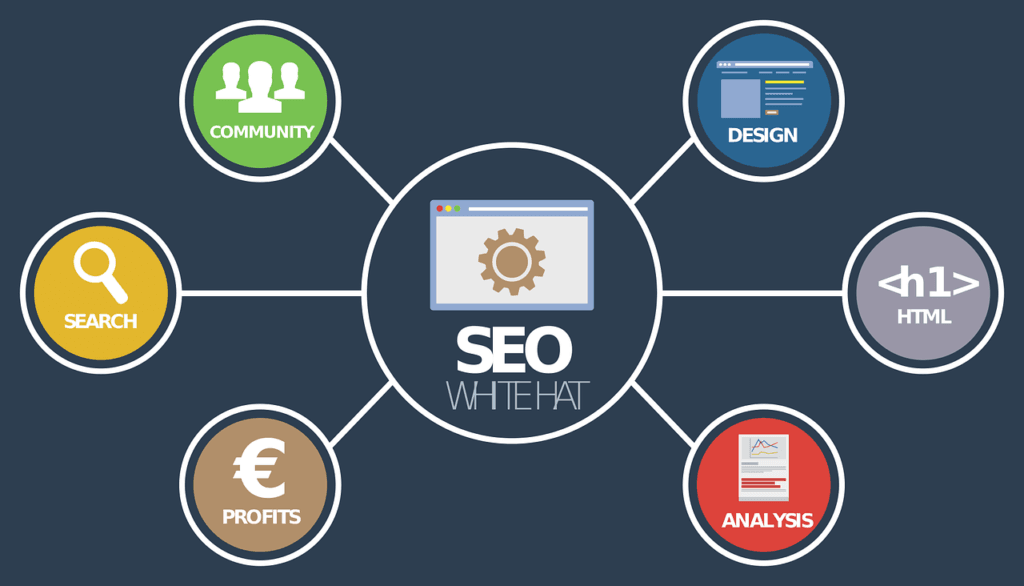This Article has been revised, edited and added to, by Poulomi Chakraborty.
- Understanding Global Seasonality
- The Dynamics of Seasonality
- Mapping the Global Travel Calendar
- Cultural Events and Festivities
- Weather Patterns and Natural Phenomena
- The Art of Predictive Seasonality Analysis
- Strategic Market Segmentation and Seasonality
- Leveraging Technological Innovations for Seasonal Forecasting
- Embracing a Dynamic Approach to Global Seasonality
- Crafting Seasonal SEO Strategies
- Keyword Research and Optimization
- Content Planning and Calendar Creation
- Leveraging Seasonal Imagery and Multimedia
- Creating Resourceful Guides and Blogs
- Integrating Real-Time Search Trends into Seasonal Planning
- Emphasizing Local SEO in Seasonal Strategy
- The Role of User Experience in Seasonal SEO
- Mastering the Seasonal SEO Symphony
- Advanced SEO Techniques for Seasonal Optimization
- Technical SEO and Website Structure
- Link Building and Outreach
- Mobile Optimization and Responsive Design
- Analytics and Performance Monitoring
- Harnessing the Power of Schema Markup for Events and Seasons
- Exploiting Seasonal Trends with Dynamic Content Optimization
- Advanced Link Building Strategies for Seasonal Pages
- Optimizing for Voice Search and Question-Based Queries
- Navigating the Future of Seasonal SEO
- Future Trends and Innovations
- Artificial Intelligence and Machine Learning
- Voice Search and Virtual Assistants
- Augmented Reality (AR) and Virtual Reality (VR)
- Blockchain Technology
- IoT (Internet of Things) and Smart Destinations
- Embracing the Digital Nomad Economy
- Leveraging Blockchain for Trust and Transparency
- The Integration of 5G Technology
- Sustainable Travel and SEO
- Preparing for a Dynamic Future
- Conclusion
Travel, a word that resonates with adventure, exploration, and experiences, stands as an ever-evolving landscape, dictated not just by destinations but by the seasons that grace them. As seasons change, so do the preferences and behaviors of travelers, creating a dynamic and pulsating market ready for exploration.
In the vast world of digital marketing, where competition is fierce, and the opportunities are boundless, tailoring SEO strategies to resonate with the global travel seasons emerges as a requisite, not just to stay afloat but to soar high, capturing the imaginations and hearts of travelers worldwide.
In this comprehensive guide, we delve deep into the realm of SEO optimization for different travel seasons globally, unraveling strategies, tips, and insights that pave the way for success in this vibrant and dynamic market. From understanding the nuances of seasonality to crafting strategies that resonate with different markets globally, we embark on a journey that promises to be both enlightening and enriching.
Understanding Global Seasonality

The Dynamics of Seasonality
As we set forth, our first endeavor is to grasp the complex dynamics of seasonality, understanding the forces that drive the changes and how they impact the travel industry. In this segment, we explore trends, market behaviors, and the subtle nuances that dictate the ebb and flow of travel seasons globally.
Mapping the Global Travel Calendar
A deep dive into the global travel calendar promises to be an enriching experience, as we map out the peak seasons, shoulder seasons, and off-seasons across different regions, offering a canvas rich with opportunities to tailor strategies and capture markets at the opportune moments.
Cultural Events and Festivities
Next, we explore the fascinating world of cultural events and festivities that punctuate the global travel calendar. This section delineates strategies to weave these vibrant occasions into your SEO narrative, creating content that resonates with the spirit of celebration, drawing travelers into the heart of local experiences.
Weather Patterns and Natural Phenomena
Understanding and leveraging weather patterns and natural phenomena stand central to seasonal SEO strategy. Here, we delve into creating content that guides travelers, helping them make informed choices, aligning their travel dreams with the rhythm of nature, be it witnessing the Northern Lights or basking in the tropical sun.
The Art of Predictive Seasonality Analysis
At the heart of understanding global seasonality lies the art of predictive analysis. Startups must harness the power of data analytics to anticipate shifts in travel behaviors before they become apparent. This entails a deep dive into historical data, identifying patterns and anomalies that hint at emerging trends. For instance, a sudden spike in interest for a destination during what traditionally is an off-peak season could signal a shift, perhaps due to a new cultural festival or a trending social media spotlight.
The strategic implication here is clear: by anticipating these shifts, startups can position themselves ahead of the curve, optimizing their SEO and content marketing strategies to capture interest at its nascent stage. This proactive approach not only enhances visibility but also positions your brand as a thought leader, attuned to the subtle shifts in global travel trends.
Strategic Market Segmentation and Seasonality
Another dimension to enriching your understanding of global seasonality is through strategic market segmentation. This goes beyond merely identifying geographical preferences to understanding the psychographics of your target audience segments. Different segments respond differently to the same seasonal cues due to a myriad of factors including cultural background, economic status, and personal preferences.
For startup founders, the actionable advice here is to tailor your digital marketing strategies to resonate with these diverse audience segments. This means creating customized content that speaks to the unique seasonal preferences of each segment. For example, while summer in Europe might attract beach-goers, it also presents a perfect opportunity to market cool, high-altitude destinations to those looking to escape the heat.
Leveraging Technological Innovations for Seasonal Forecasting
In today’s digital era, technological innovations offer unprecedented opportunities to refine our understanding of seasonality. Machine Learning (ML) and Artificial Intelligence (AI) can process and analyze vast datasets, revealing insights not apparent to the human eye. By incorporating ML and AI into your data analysis processes, startups can uncover predictive indicators of seasonal interest, enabling a more dynamic and responsive marketing strategy.
The strategic takeaway for startups is the necessity of investing in technology that enables smarter, data-driven decisions. Utilizing AI and ML not only for predictive analysis but also for personalizing customer interactions can significantly enhance the effectiveness of your seasonal marketing efforts. This could mean personalized email marketing campaigns that align with the individual’s past travel behaviors and predicted future interests based on seasonality.
Embracing a Dynamic Approach to Global Seasonality
Understanding global seasonality is not a static endeavor; it is a dynamic process that requires constant adaptation and innovation. For startup founders, this means adopting a flexible, data-informed approach to digital marketing, one that anticipates changes, understands the market’s complexity, and leverages technology to stay ahead. By deepening your understanding of global seasonality through predictive analysis, strategic market segmentation, and the use of technological innovations, your startup can not only navigate but thrive in the fluctuating landscape of global travel.
Crafting Seasonal SEO Strategies

Keyword Research and Optimization
As we venture into the realm of SEO strategies, keyword research emerges as the cornerstone. This section educates on meticulous keyword research, identifying phrases that resonate with different seasons, crafting content that speaks to the wanderlust in travelers, beckoning them to destinations showcased in their best seasonal glory.
Content Planning and Calendar Creation
Taking a step further, we dive into content planning and calendar creation, essential tools in the SEO arsenal. Learn to craft compelling narratives, timed perfectly to capture the imagination of travelers as they begin their search for the next perfect holiday, aligned with the global travel seasons.
Leveraging Seasonal Imagery and Multimedia
In this section, we elaborate on the immense potential of seasonal imagery and multimedia in elevating your SEO strategy. Learn how to curate stunning visual narratives, leveraging images and videos that resonate deeply with the spirit of various seasons, captivating potential travelers and encouraging them to embark on journeys guided by your enriching content.
Creating Resourceful Guides and Blogs
Stepping further, we dive into the world of content creation, focusing on crafting resourceful guides and blogs. This section sheds light on creating engaging blog posts that serve as a goldmine of information, guiding travelers to explore destinations in all their seasonal splendor while optimizing for SEO to ensure a broader reach and engagement.
Integrating Real-Time Search Trends into Seasonal Planning
The dynamic nature of search trends, especially in the travel sector, necessitates a real-time approach to SEO strategy. This means going beyond static keyword lists to integrating live search data into your content planning. Utilizing tools that track trending topics and search queries in real-time allows startups to tap into the pulse of traveler interest, adapting content strategies to reflect emerging trends as they happen.
The strategic implication here is the ability to be first to market with content that matches rising traveler interest, whether it’s a sudden spike in searches for eco-friendly accommodations or a newfound interest in remote work vacations. This agility in content creation and optimization can set your brand apart, making it a go-to source for current and prospective travel insights.
Emphasizing Local SEO in Seasonal Strategy
While global travel trends dictate broad strategy, the power of local SEO cannot be overstated, particularly when crafting seasonal SEO strategies. Each destination has its unique seasonal attributes, from local festivals to off-the-beaten-path winter escapes. By emphasizing local SEO, startups can capture the interest of travelers looking for authentic, localized travel experiences.
To implement this strategy effectively, ensure your content is localized not just in language but in cultural nuances, local events, and season-specific recommendations. This means creating location-specific pages on your website with high-quality, localized content that resonates with both search engines and travelers. Collaborating with local influencers and businesses to enrich your content can also amplify your local SEO efforts, driving both relevance and authority in local search results.
The Role of User Experience in Seasonal SEO
In the quest for top rankings, the significance of user experience (UX) in SEO strategies often goes underappreciated. However, for seasonal SEO, the UX can be the differentiator between a website that captivates and converts and one that merely ranks. Seasonal fluctuations in travel interest present an opportunity to tailor your website’s UX to match the seasonal journey of your target audience.
Strategically, this means designing your site to reflect seasonal themes, making it easy for users to find seasonally relevant content. It involves ensuring that your site is quick to load, mobile-friendly, and easy to navigate, reducing bounce rates and improving engagement metrics that search engines use as ranking signals. Moreover, integrating seasonal offers, deals, and call-to-action (CTA) buttons strategically across your site can enhance the user journey, making it seamless for travelers to transition from inspiration to action.
Mastering the Seasonal SEO Symphony
Mastering seasonal SEO is akin to conducting a symphony, where every element from real-time search trends to local SEO nuances and UX enhancements plays a crucial role in creating a harmonious and impactful result. For startup founders, the journey to SEO success in the global travel industry is both challenging and rewarding. By adopting a strategic, data-driven approach that emphasizes agility, localization, and user experience, startups can not only navigate but thrive in the seasonal ebbs and flows of traveler interest, carving out a distinct and memorable presence in the crowded digital landscape.
Advanced SEO Techniques for Seasonal Optimization

Technical SEO and Website Structure
As we transition into the advanced techniques, we first focus on technical SEO and the pivotal role played by website structure. Learn how to build a website that is not only visually appealing but also SEO optimized, ensuring smooth navigation and a user-friendly experience that adapts seamlessly to various travel seasons globally.
Link Building and Outreach
Link building and outreach stand as powerful tools in your SEO toolkit. This section explores strategies to build a robust network of high-quality links, leveraging seasonal content to foster partnerships and collaborations, amplifying your reach and establishing authority in the seasonal travel niche.
Mobile Optimization and Responsive Design
In this era, mobile optimization is no longer a luxury but a necessity. Learn how to cater to the ever-growing mobile user base by focusing on responsive design, offering an optimized browsing experience that facilitates seamless planning across various travel seasons, capturing the travelers’ imaginations instantly through their handheld devices.
Analytics and Performance Monitoring
Next, we focus on the integral role of analytics and performance monitoring in shaping a successful SEO strategy. Here, we explore the world of analytics, guiding you on how to leverage data to understand user behaviors, preferences, and trends, allowing for dynamic SEO strategies that evolve with the changing travel seasons.
Harnessing the Power of Schema Markup for Events and Seasons
In the realm of advanced SEO, Schema markup stands out as a powerful tool to directly communicate with search engines, providing them with explicit information about the content of your website. For travel-related businesses, utilizing Schema markup for events and seasonal pages can significantly enhance visibility in search engine results pages (SERPs), making your offerings stand out.
Incorporating event Schema markup for seasonal festivals, local happenings, and exclusive offers can help your pages earn rich snippets, potentially increasing click-through rates. This technique involves adding specific code to your web pages, which clearly indicates to search engines the nature of the event, its date, location, and other relevant details, making this content more easily digestible and displayable in search results.
Exploiting Seasonal Trends with Dynamic Content Optimization
The concept of dynamic content optimization revolves around the ability to adapt web content in real-time to match the evolving interests and search behaviors of your target audience. This advanced technique can be particularly effective for capitalizing on sudden shifts in travel trends or emerging seasonal interests.
Implementing dynamic content optimization requires a robust content management system (CMS) and real-time analytics to monitor search trends and user behavior. By setting up automated rules, you can adjust content, meta tags, and even page layouts to better align with current search trends and user interests, ensuring your site remains relevant and engaging, irrespective of seasonal shifts.
Advanced Link Building Strategies for Seasonal Pages
Link building remains a cornerstone of SEO, but its application can be particularly nuanced when it comes to seasonal optimization. An advanced strategy involves focusing on building high-quality backlinks to your seasonal pages well in advance of the peak season to give those pages enough time to gain authority and rank.
To achieve this, consider creating evergreen content that includes a seasonal angle, which can be updated and promoted annually. Engage with influencers and niche bloggers early, offering them compelling reasons to link to your content. Additionally, leveraging local events and community engagements can provide opportunities for local institutions to link back to your relevant seasonal pages, enhancing both relevance and authority in the eyes of search engines.
Optimizing for Voice Search and Question-Based Queries
With the rise of voice search, optimizing for conversational queries and question-based searches becomes imperative in an advanced SEO strategy. Travelers often use voice search to inquire about destinations, accommodations, and local events, framing their searches as questions or using natural language.
To capitalize on this trend, structure your content to directly answer potential questions travelers might ask about different seasons and destinations. Incorporating a FAQ section on your seasonal pages or creating blog posts that answer specific queries can improve your chances of appearing in voice search results, making your content more accessible to the growing number of users relying on digital assistants for travel planning.
Navigating the Future of Seasonal SEO
As the digital landscape continues to evolve, so too must the strategies employed by startups to remain competitive. The advanced techniques outlined above represent a fraction of the innovative approaches necessary to master seasonal SEO. By staying ahead of technological advancements, understanding the nuances of search engine algorithms, and continually adapting to the changing behaviors of travelers, startups can not only survive but thrive in the dynamic world of global travel, leveraging SEO as a powerful tool to capture the imagination and interest of travelers worldwide.
Future Trends and Innovations

The travel industry, fueled by advancements in technology and changing user behaviors, stands at the forefront of innovation. As SEO remains a critical component of digital marketing for travel, understanding future trends and innovations is imperative to maintain a competitive edge. Let’s explore these upcoming revolutions.
Artificial Intelligence and Machine Learning
Artificial Intelligence (AI) and Machine Learning (ML) are increasingly playing pivotal roles in reshaping the travel industry’s digital landscape.
- Predictive Analysis: AI can process vast amounts of data to predict travel trends, allowing businesses to tailor their SEO strategies in advance. For instance, if AI detects a rising interest in a particular destination during a specific season, businesses can pre-emptively create content around that trend.
- Personalization at Scale: ML algorithms can analyze user behavior, preferences, and past interactions to deliver personalized travel recommendations. Integrating these insights into your SEO strategy can ensure that your content appeals directly to individual user needs and desires.
- Automated Content Creation: While human touch remains irreplaceable, AI can assist in generating basic content drafts or suggest content optimizations based on user intent and behavior, ensuring your content remains relevant and timely.
Voice Search and Virtual Assistants
The rise of smart speakers and virtual assistants like Alexa, Siri, and Google Assistant has brought voice search to the forefront.
- Conversational SEO: Traditional keyword-focused content might not align with the natural language queries of voice search. It’s crucial to adapt your content to be more conversational, answering the typical questions travelers might voice out loud.
- Local SEO Boost: Travelers often use voice search for on-the-go queries, such as “best restaurants near me” or “top tourist attractions in [city].” Optimizing for local SEO becomes even more crucial, ensuring travelers can find your business easily when they’re in your vicinity.
- Featured Snippets and Direct Answers: Voice search often pulls answers from featured snippets on search engines. Ensuring your content is structured to potentially land in these coveted spots can amplify your visibility in voice search results.
Augmented Reality (AR) and Virtual Reality (VR)
While AR and VR might seem more relevant to the user experience than SEO, there’s an intertwining relationship.
- Virtual Travel Experiences: Especially relevant in unpredictable travel scenarios or off-seasons, VR can offer virtual travel experiences. Creating content around these experiences and optimizing them for search can attract those who are in the research or dreaming phase of their travel planning.
- AR-enhanced Local Exploration: Augmented Reality can offer enriched local experiences, from historical site overlays to restaurant reviews. Integrating AR experiences and marketing them through SEO can draw travelers keen on interactive experiences.
Blockchain Technology
Blockchain can influence trust and transparency in travel reviews and recommendations. As reviews play a crucial role in travel decision-making and influence SEO rankings, a verifiable and tamper-proof review system can drastically reshape SEO strategies.
IoT (Internet of Things) and Smart Destinations
IoT can enhance the travel experience, from smart hotel rooms to personalized city tours based on real-time data. SEO strategies can encompass these innovations, targeting tech-savvy travelers looking for smart destinations and experiences.
Embracing the Digital Nomad Economy
The rise of the digital nomad lifestyle, fueled by the global shift towards remote work, presents a unique opportunity for the travel industry. As more people embrace the possibility of working from anywhere, destinations traditionally considered vacation spots are now potential hubs for digital nomads.
For startups, this trend underscores the importance of optimizing content and SEO strategies to cater to this growing demographic. This involves creating dedicated sections or content that speaks to the needs and interests of digital nomads, such as coworking spaces, long-term accommodation options, and insights into the local digital infrastructure. Tailoring your SEO strategy to include keywords related to remote work and digital nomadism can capture this audience as they plan their next move.
Leveraging Blockchain for Trust and Transparency

Blockchain technology is set to revolutionize the travel industry by enhancing trust and transparency in online transactions and reviews. As travelers increasingly seek out trustworthy information and secure booking platforms, startups can leverage blockchain to provide verifiable customer reviews and tamper-proof records of transactions.
Incorporating blockchain technology into your SEO and content strategy can position your startup as a leader in innovation and reliability. Highlighting your use of blockchain for security and transparency in your marketing materials and SEO keywords can attract tech-savvy travelers who value these attributes.
The Integration of 5G Technology
The rollout of 5G technology promises to dramatically improve internet speed and connectivity worldwide, which has significant implications for the travel industry. With faster download speeds and reduced latency, travelers can expect enhanced online experiences, from virtual tours to seamless booking processes.
For startups, optimizing for 5G means ensuring your online platforms are ready to handle increased data and deliver content-rich experiences without lag. This might involve investing in high-quality video content, virtual reality tours, and other multimedia elements that can now be fully leveraged with 5G speeds. SEO strategies should also adapt to include keywords and content that highlight these advanced capabilities and experiences.
Sustainable Travel and SEO
Sustainability is a growing concern among travelers, with many seeking eco-friendly travel options and destinations that prioritize conservation efforts. This trend offers a valuable niche for startups to explore, both in terms of product offerings and content strategy.
Developing content that showcases your commitment to sustainability, such as promoting eco-friendly accommodations or tours that contribute to local conservation efforts, can help you tap into this market. Optimizing for keywords related to sustainable travel and eco-tourism can improve your visibility to travelers who prioritize these factors in their travel decisions.
Preparing for a Dynamic Future
As we navigate the future of the travel industry, embracing these trends and innovations will be crucial for startups looking to gain a competitive edge. From adapting to the digital nomad economy and leveraging blockchain for enhanced trust, to preparing for the impact of 5G and prioritizing sustainability, the opportunities for strategic growth and differentiation are vast. By staying informed and agile, startups can not only anticipate the needs of tomorrow’s travelers but can lead the charge in shaping the future of travel.

Related: Check out our free SEO suite

Conclusion
As we culminate this comprehensive journey through the intricacies of optimizing SEO strategies for different travel seasons globally, we stand amidst a panorama of opportunities, rich with potential and brimming with possibilities. From the initial steps of comprehending the vast dynamics of global seasonality to unraveling advanced techniques and standing on the cusp of future innovations, we have navigated a landscape both rich and diverse. The global travel industry stands as a vibrant canvas, constantly evolving, offering myriad hues to explore and embrace.
The foundation of crafting an unassailable SEO strategy rests upon a profound understanding of the changing seasons, their impact on travel preferences, and the vast array of cultural events and natural phenomena that dictate travel choices. We have learned the importance of meticulous keyword research, content planning, and the power of visual narratives in captivating the audience.
As we ventured into advanced techniques, the role of technical SEO, link building, mobile optimization, and analytics emerged, presenting tools and strategies to build a robust and dynamic SEO framework, adaptive and responsive to the pulsating rhythm of global travel seasons. Looking forward, we stand on the threshold of a new era, with AI and ML promising to revolutionize SEO strategies, offering predictive analysis and personalized experiences. The burgeoning field of voice search opens new avenues, inviting us to craft narratives that resonate with the evolving preferences of modern travelers.
Read Next
- Role of User Experience (UX) in SEO: What the Data Says
- Local SEO Strategies for Small Businesses: The Complete Guide
- SEO vs. PPC: Which Brings in More Traffic and Leads?
- E-commerce SEO: The Complete Guide
- The Complete Guide to International SEO: 2023 Best Practices!





















Comments are closed.